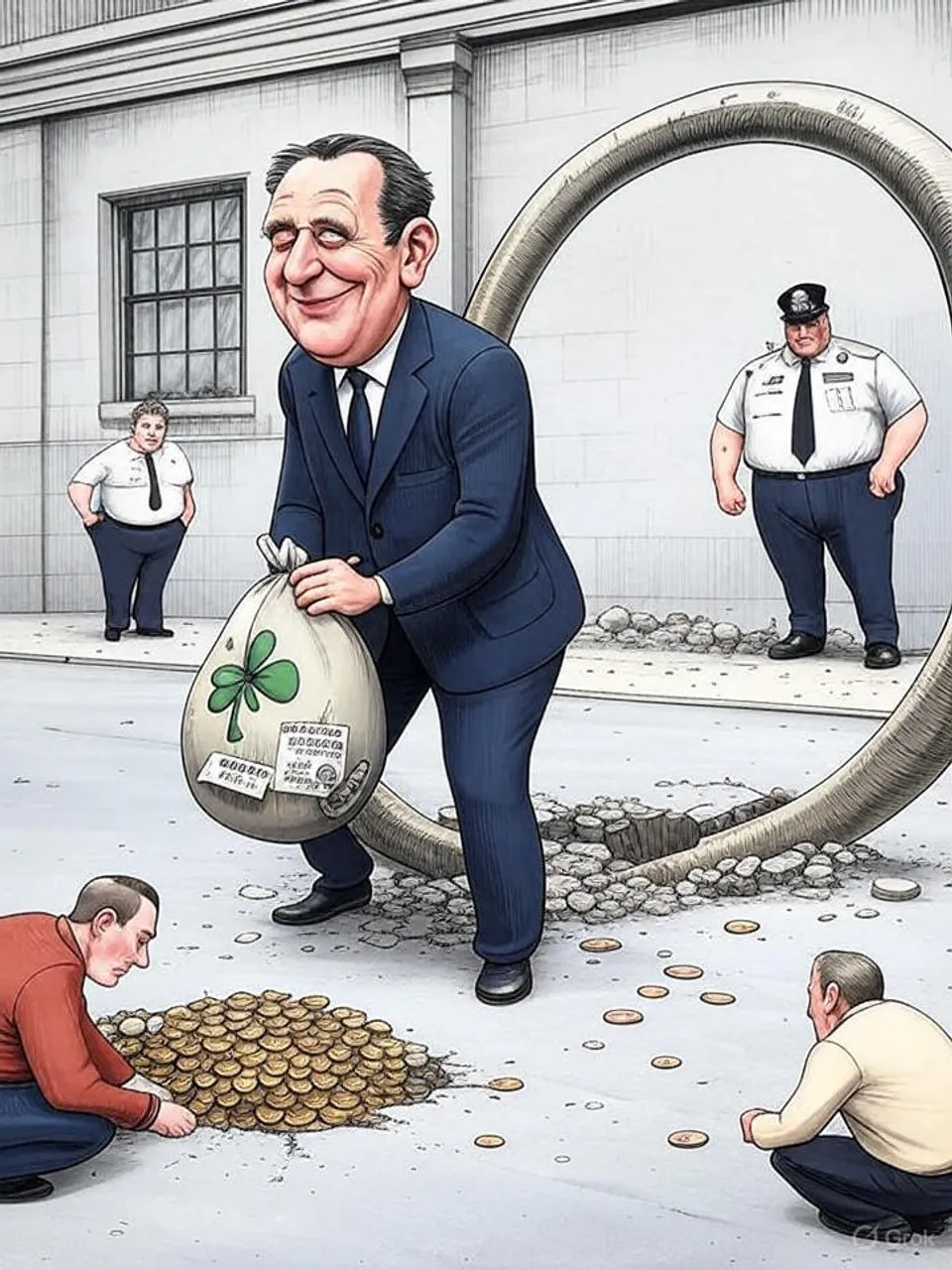£3,000 Payments Loop Migrants Back Through Ireland

9,227 departures double under Labour, but hundreds re-enter via unchecked routes
The Assisted Voluntary Return Scheme pays illegal migrants to leave, yet social media guides enable swift returns through Ireland, wasting over £27 million in taxpayer funds annually. This exposes enduring failures in border enforcement across governments, sustaining underground economies.
Taxpayers fund a revolving door at the border.
The Home Office’s Assisted Voluntary Return Scheme offers illegal migrants £3,000 plus airfare to leave the UK. Officials present this as an efficient tool to reduce irregular migration. In practice, hundreds exploit it to pocket the cash and return swiftly, mocking the system on social media as “too trusting.”
Social media tutorials detail the abuse. Migrants claim payments, fly home briefly—often to Brazil—then acquire fresh passports to erase UK stamps. They reroute through EU countries to Dublin, bus to Belfast, and continue to Glasgow or London, evading checks under the Common Travel Area agreement.
One Brazilian posted his journey online. Irish officials grilled him for three hours, suspecting deception, but issued a five-day visa after he claimed a short visit. He flew from Shannon to London without further scrutiny, celebrating the loophole.
A family of four collected £12,000 to “rebuild” in Brazil. The father returned within six months as an illegal delivery driver. Another couple used funds for a home birth, then the mother resumed cleaning work in Britain.
Government data underscores the scale. In the year to June, 9,227 people departed under the scheme—more than double the previous Conservative year’s total. Brazilians accounted for 4,810, forming the largest group.
This surge reflects policy expansion under Labour. The scheme aims to clear asylum backlogs without forced removals. Yet evidence shows up to half of recipients re-enter the underground economy, sustaining illegal work in delivery and cleaning sectors.
The route via Ireland exposes enforcement gaps. No biometric checks occur at the Irish border, a longstanding feature of UK-Ireland relations dating to 1923. Migrants film successes in London’s Soho, sharing tips that perpetuate the cycle.
Previous governments faced similar issues. Under Conservatives, returns numbered around 4,000 annually, with less abuse documented publicly. Labour’s doubling of payouts correlates with higher exploitation, but root causes—lax post-return tracking and open Irish routes—predate both.
Taxpayer cost compounds the failure. Each £3,000 payment, multiplied by 9,227 departures, totals over £27 million yearly. Returned migrants contribute nothing in taxes while competing in low-wage jobs, straining public services amid rising domestic bills.
Broader migration patterns amplify this. Small boat arrivals continue unchecked, with asylum grants at record highs. Voluntary returns serve as a facade, diverting funds from border security to incentives that fail.
Institutions prioritize optics over outcomes. Home Office metrics count departures but ignore re-entries. No audits track recipients post-flight, allowing abuse to flourish across administrations.
Shadow Home Secretary Chris Philp calls for Irish biometric checks or UK entry scans from Ireland. Such measures would require bilateral negotiation, stalled since Brexit. Without them, the scheme remains a sieve.
This episode reveals systemic inertia. UK borders rely on trust in voluntary compliance, undermined by global mobility and digital sharing. Policies recycle funds into loops that mock enforcement efforts.
Ordinary citizens bear the load. While households face energy hikes and council tax rises, public money subsidizes migrant returns. Delivery times lengthen from illegal labor influx; cleaning costs rise in a shadowed market.
The pattern endures because accountability evades capture. Officials rotate roles without consequence for flawed designs. Cross-party pledges on migration control yield identical results: promises unmet, borders porous.
Britain’s migration apparatus operates in denial. Voluntary returns promise efficiency but deliver waste. This fuels underground economies that erode legal labor and trust in state competence.
The uncomfortable truth stares from social media mocks. Taxpayers finance a game where the house always loses. Until enforcement matches rhetoric, decline in border integrity accelerates, indifferent to which party holds power.
Commentary based on Migrant crisis: Hundreds of illegal migrants are sneaking back into the UK after being handed £3,000 of taxpayers’ cash to leave at GB News.